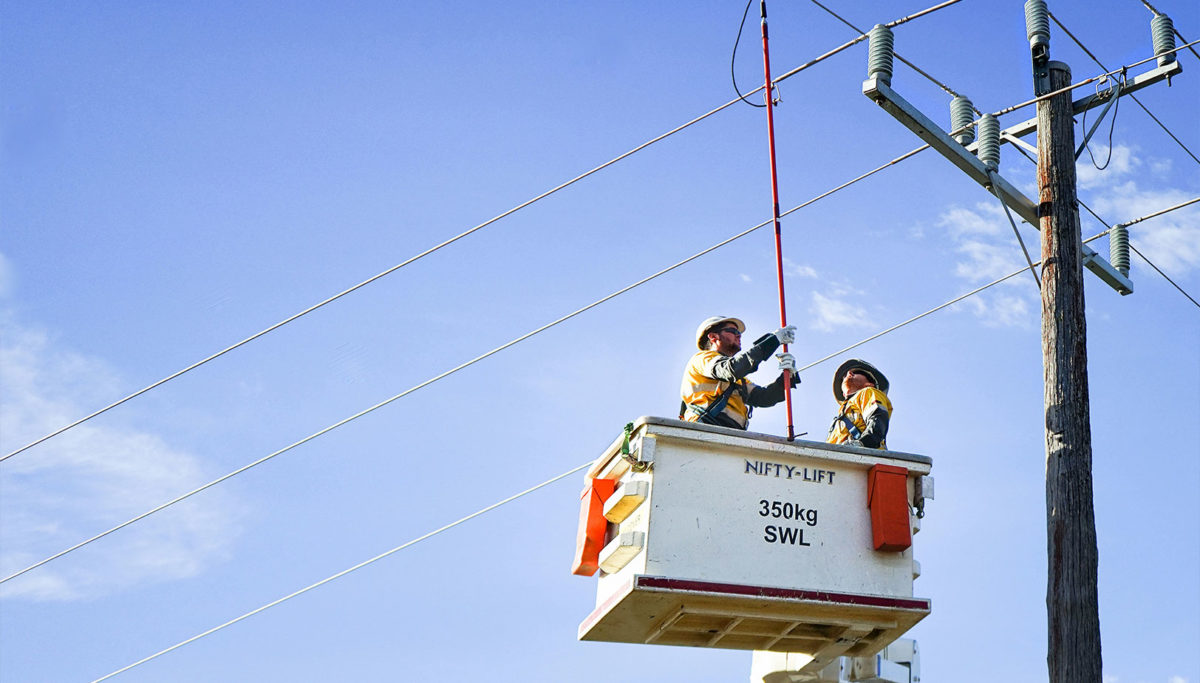Spark Infrastructure has told shareholders it is in the company’s interest to engage in talks after a consortium including United States-based private equity group Kohlberg Kravis Roberts & Co delivered a third buyout offer which values the company at $5.2 billion (US$3.85 billion).
The consortium, which also includes Canada’s Ontario Teachers’ Pension Plan Board, revealed its new, higher offer of $2.95 (USD$2.18) per security on Wednesday.
Spark, which owns a 49% stake in Victorian distribution operators Powercor and CitiPower, 49% of South Australia’s distribution network operator SA Power Networks, and a 15% stake in transmission network operator Transgrid in New South Wales, had previously knocked back two acquisition proposals from the consortium.
Spark said those bids – the initial $2.6375 and the follow up $2.7375 (in local currency) – undervalued the company but left the door open for an improved offer and provided the consortium with “limited information” on its business and its prospects.
The consortium has now provided a third offer that represents a 26% premium on the closing price of $2.30 on July 13, the day before the first bid was received.
In an ASX announcement on Wednesday, Spark told shareholders it is in the company’s interest to continue to talk with the consortium and granted its suitors access to its books.
“Following careful consideration, and consultation with its advisers, the board of Spark Infrastructure considers that it is in the interests of Spark Infrastructure’s securityholders to engage further with the consortium,” Spark said in the statement.
“Accordingly, Spark Infrastructure has decided to provide the consortium with the opportunity to conduct due diligence on a non-exclusive basis.”
While Spark said it will engage further with the North American consortium, and allow it to complete the necessary due diligence, the company also made it clear that it was open to other approaches if this one failed.
“The board notes that there is no certainty that the engagement between Spark Infrastructure and the consortium will result in a control transaction,” Spark said in the ASX statement.
“The board remains focused on maximising securityholder value and will carefully consider any proposal that is consistent with this objective.
“Irrespective of whether the engagement between Spark Infrastructure and the consortium results in a control transaction, the board considers that Spark Infrastructure has a high quality and scarce group of regulated assets that have a very attractive future and is well positioned to continue to deliver an attractive yield now with franking credits.
“Complementing its reliable and inflation-linked revenues, Spark Infrastructure’s investment portfolio also has strong growth prospects in its underlying high-quality asset base and has strong ESG credentials given its important role in supporting the multi- decade energy transition to a lower carbon future.”
Until recently Spark was exclusively an investor in regulated network infrastructure but it has begun developing a portfolio of wind, solar and storage assets, targeting more than $1 billion of investment in renewable energy generation by 2025.
Earlier this month it announced plans to develop a 2.5 GW hybrid wind, solar PV and battery storage project in New South Wales while the 100 MW Bomen Solar Farm came online last year.
The company has also revealed it has plans to construct a 60 MW extension at the Bomen Solar Farm as well as a yet to be identified 150 MW solar+storage project and a 350 MW wind farm in NSW along with a massive 600 MW wind farm project in South Australia.
This content is protected by copyright and may not be reused. If you want to cooperate with us and would like to reuse some of our content, please contact: editors@pv-magazine.com.




By submitting this form you agree to pv magazine using your data for the purposes of publishing your comment.
Your personal data will only be disclosed or otherwise transmitted to third parties for the purposes of spam filtering or if this is necessary for technical maintenance of the website. Any other transfer to third parties will not take place unless this is justified on the basis of applicable data protection regulations or if pv magazine is legally obliged to do so.
You may revoke this consent at any time with effect for the future, in which case your personal data will be deleted immediately. Otherwise, your data will be deleted if pv magazine has processed your request or the purpose of data storage is fulfilled.
Further information on data privacy can be found in our Data Protection Policy.